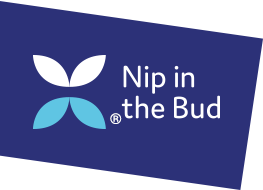Watch our Films
My Voice Matters
We speak with children and young people featured in our films about their experience of mental health and neurodiversity and why their voice and perspective matters.
PTSD in Children
Exposure to traumatic events is very common in young people. After a trauma a child may feel distressed, tearful or in shock. In most cases they will recover well with family support but if these feelings persist, they may have developed Post Traumatic Stress Disorder (PTSD). This film explains how to identify and help a child showing the symptoms of PTSD.
Read and download our fact sheets, watch more videos or sign up for our mailing list and free interactive guide.
What is post-traumatic stress disorder (PTSD)?
Many young people will go through trauma – where they felt very scared for themselves or for someone else. Sometimes, this can lead to mental health difficulties such as post-traumatic stress disorder (or PTSD). In this video you will learn about PTSD – what it might look like or feel like, the main symptoms, and where you might go if you need help or support.
What is trauma-focused CBT?
Trauma-focused cognitive behaviour therapies are our best-evidenced way to help young people to overcome post-traumatic stress disorder (PTSD). Learn about what trauma-focused CBT is and how it can help someone to face and overcome their traumas.
Coping with scary and distressing memories
When young people go through traumas one of the hardest things to deal with can be their memories of what happened. This video gives brief advice on what you can do to help cope with memories that are very scary or distressing, and where you can turn to for support.
Absolutely not: and other thoughts you might have about mental health support
After you’ve been through very frightening experiences, asking for help and getting mental health support can feel scary or overwhelming. Sometimes it might feel like there is no one that could possibly help. This video talks about getting mental health support after trauma, and why, even if it feels hard, it can be helpful.
PTSD and Me : Real Life Child Mental Health Experiences
Please note – some images and content may be upsetting or disturbing. This film is not intended to be watched by children.
This short film features real life accounts of Post-Traumatic Stress Disorder (PTSD) experienced by young people. Through their words we see the importance of early intervention by parents and teachers.
Exposure to traumatic events is very common in young people. After a trauma a child may feel distressed, tearful or in shock. In most cases they will recover well with family support but if these feelings persist, they may have developed Post-Traumatic Stress Disorder (PTSD).
Nip in the Bud strongly believes that early intervention and support for children ensures far better outcomes.
Read and download our fact sheets, watch more videos or sign up for our mailing list and free interactive guide.
How to Recognise Symptoms of PTSD
Read and download our fact sheets, watch more videos or sign up for our mailing list and free interactive guide.
Further information:
Although children and young people with PTSD don’t often talk about their traumatic experiences, young children will often draw or re-enact the scarring event. It is best to approach the child to have a conversation about how they feel and what they’re experiencing, as they will not bring it up with you directly as it is too painful, and the child may be actively trying to repress the event.
Do not attempt to talk about the event during a flashback or trigger as this will cause more harm – wait till the child is calmer and respect their boundaries if they do not want to talk about it. If your child is experiencing a flashback caused by a trigger you can ease them by helping them stay grounded and mindful of the here and now.
It is extremely difficult to see your child going through intense stress and anxiety caused by a traumatic event. If you were involved in the traumatic event yourself and are also experiencing symptoms of PTSD, it is crucial you also seek help if you feel it necessary and seek support from other family members if you are able to.
If your child experiences severe PTSD symptoms for over a month, contact a Special Educational Needs Co-Ordinator (SENCO) or a mental health professional.

